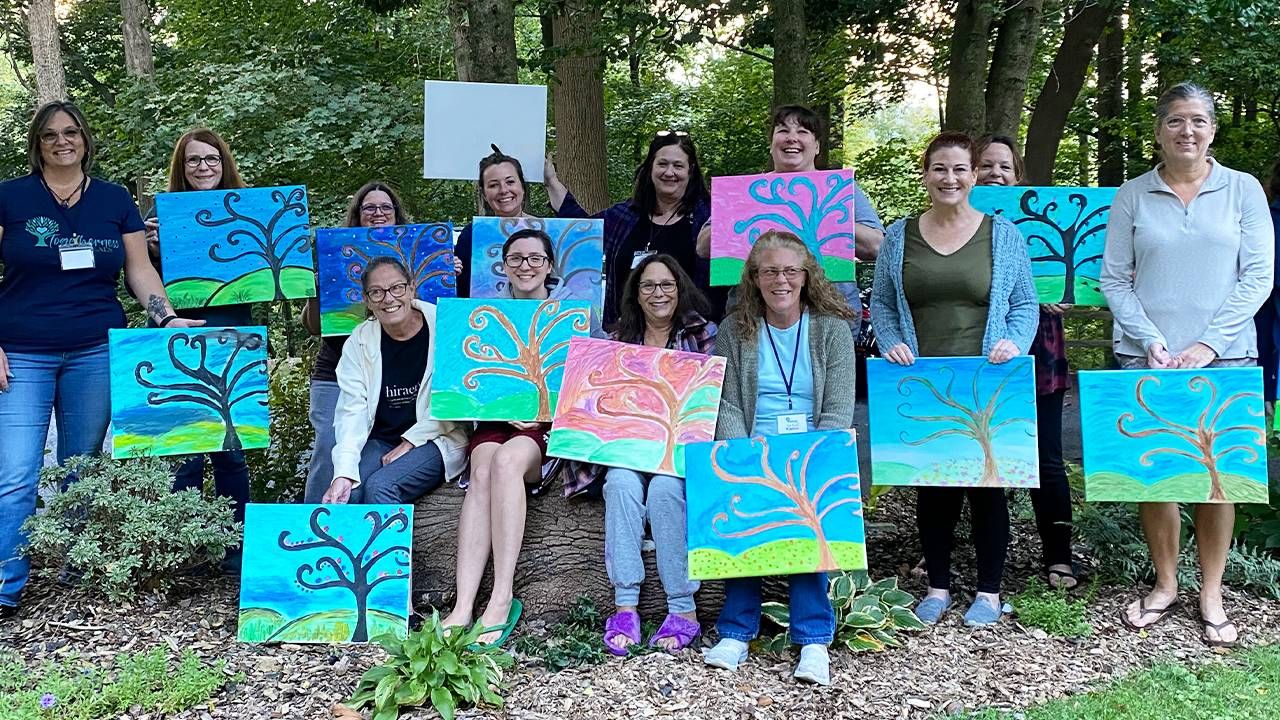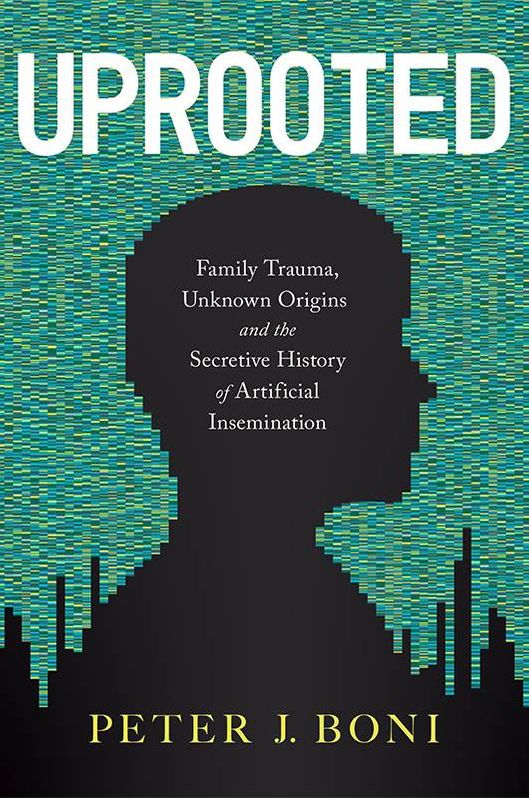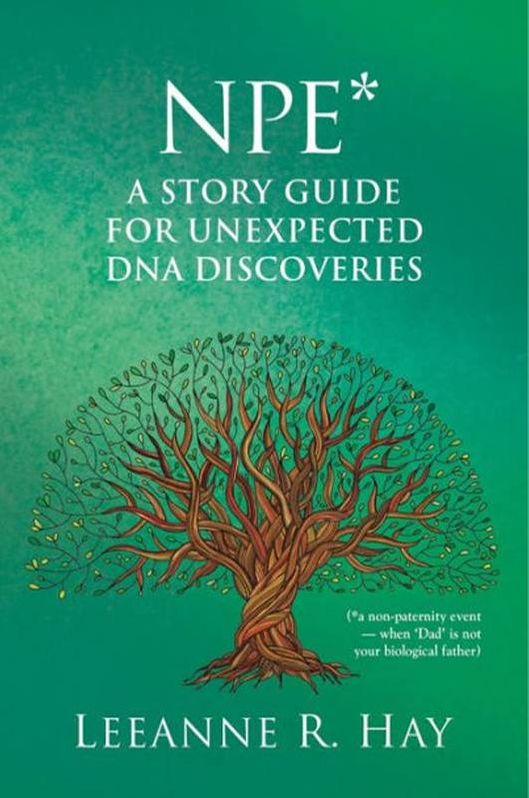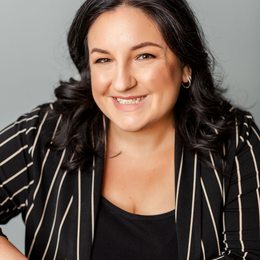Aftershock: How to Cope with Surprise DNA Discoveries
Online communities, retreats, and books are available to support those who find themselves in this unexpected group
It is estimated that more than 26 million people have taken an at-home DNA test such as 23 and Me, AncestryDNA, and others. And this statistic, which is one of the most recent numbers available, is actually from 2019 — so that number has likely grown.

While most people who take these tests may find out some fun family facts, then go about their lives, a small minority of DNA test takers' lives are changed forever.
In a contributed article to The Washington Post, Libby Copeland, journalist and author of "The Lost Family: How DNA Testing is Upending Who We Are," writes that "We live in the age of genetic reckoning."
"'Misattributed' was a term totally unfamiliar to me until I began researching my origin."
Based on her extensive research, Copeland estimates that at least one million people who have taken a recreational DNA test have discovered the man they knew as their father is not their genetic father, or that they have unknown half siblings. She also notes that a Pew Research Study cites that more than a quarter of DNA test takers have found an unexpected close relative.
The people who make these discoveries have acronyms such as "MPE" (misattributed parenting event) or "NPE" (not parent expected/non-parental event) to help them label themselves and the experience.
"'Misattributed' was a term totally unfamiliar to me until I began researching my origin," says Peter J. Boni, best-selling author of "Uprooted," a book he wrote after two decades of research to find his biological father.
"Misconceived, misunderstood, misnomer; I was familiar with a lot of other 'mis' words. It means that someone is an NPE, misattributed in a non-parental event to one or both parents. The birth certificate and the DNA don't jive," he says.
After the DNA Discovery is Made
"How can that be? Late-discovery closed adoption, an extramarital affair, a one-night stand, sexual assault, raised by another family member, abducted or switch at birth," he continues. "All could be reasons. Or, like me, 'semi-adopted' in a highly secretive process where parents were fully complicit — artificial insemination by an anonymous donor. I was sperm donor conceived."
"Those who have an NPE discovery should feel free to feel every conflicting emotion there is; give yourself permission to feel them," Boni says. "I also benefitted from finding a community and therapy. And most important, know that you are not alone."
Eve Sturges is a therapist, writer, and podcaster from Los Angeles who is familiar with how an at-home DNA test can rock your world. Her "Everything's Relative" podcast regularly features experts in the field as well as stories of NPEs and the impact their discoveries made on their lives and the lives of their loved ones.
The Trauma of a DNA Discovery
"A DNA discovery can be incredibly disorienting and even traumatic," Sturges explains. "The existential crisis of an N/MPE can create anxiety or depression, and trigger strong emotions like anger, grief, and fear. All of this can be exacerbated by common stressors like loss of sleep, lack of support, and difficult or painful information. It is incredibly important to recognize the huge experience as such and give yourself time to process it."

For those who make these discoveries later in life, there can be even more extenuating circumstances; the original or newly discovered parents may have passed away, leaving questions that often can't be answered.
"This can feel isolating," Sturges says about late-in-life DNA discoveries. "The number one thing to know is that you are not alone. Find the growing community out there that is ready to support you, listen to you, commiserate with you, and eventually laugh with you. The powerlessness of the unknown is overwhelming, so it's important to recognize where you do have control or answers in your own life."
Sturges says that "all the facets of mental health care" are important during this process.
"Support of community or family, physical activity, an enjoyable or stimulating pastime or hobby, a healthy lifestyle, and the support of a therapist are all ways to survive the shock and confusion of a non-parental event, especially if answers are impossible to find," says Sturges, who has curated a list of resources on her website.
Creating Connections
Catherine St Clair, a Texas resident and founder of the NPE Friends Fellowship, shares that her own NPE discovery, "caused the floor to fall out from under me."
A nonprofit group, NPE Friends Fellowship provides community, support, and resources to NPEs and their families through online resources, in-person events and retreats, and even scholarships and financial support in specific situations.
"Don't dive in feet first and don't imply that you are instant family, because you are not. These are usually total strangers that may or not be a good blend in each other's lives."
"Today, four and a half years after it started, we provide support to over eleven-thousand people worldwide, covering over forty countries on six continents," St Clair shares. "Our NPE Friends community consists of over one hundred twenty-five Facebook groups, including our main group for NPEs only [population eight thousand four hundred and growing]."
"My top advice is 'be still and breathe,'" St Clair says about those who experience this discovery later in life. "When this discovery is made, it is in your best interests to not act [right away]. Recognize that you have experienced a trauma to your psyche that is as real as surviving a major car accident or the sudden unexpected death of a very close loved one. This is a trauma."
She continues, "Your first inclination may be to try to downplay it as a minor incident, or to not afford yourself the right to have any feelings on this matter at all. I recommend that you try to separate the adult in you from that inner child who is always present in the shadow of your adult identity."
St Clair recommends that NPEs also avoid making rash decisions and keep priorities in place — especially when it comes to connecting with newly discovered genetic connections.
"Don't dive in feet first and don't imply that you are instant family, because you are not. These are usually total strangers that may or may not be a good blend in each other's lives," St Clair says. "Start with just getting to know each other. A potential friendship could develop over time, but becoming family takes time together to build memories. Don't have lofty expectations. Most important, no matter how well received you may be by the new family, shield that inner child through it all."
St Clair recommends prioritizing sharing important medical history, photographs, necessary personal information, and getting acquainted only as both parties are comfortable.
Healing and Helping Others
Erin Cosentino of Toms River, N.J., made her own NPE discovery four years ago. She says that she knew her biological father as a child and, when the discovery was made and they connected, he didn't want to be involved in her life.

"That was so hard and life altering," she says. "I decided to heal in the best way I knew how — through education."
Alongside friend Cindy McQuay, an adoptee whom she met at a retreat, Cosentino runs healing retreats for adoptees, donor-conceived people, late discovery adoptees, and NPEs through her organization Hiraeth Hope & Healing.
"To be in the same room as others who have experienced this same trauma, which feels so lonely, is healing," she says. In addition to the retreats, they run a Facebook group for NPEs.
Leeanne R. Hay, a Texas-based NPE, writer and author of "NPE* A Story Guide for Unexpected DNA Discoveries," made her own NPE discovery in 2017 and decided to turn the traumatic incident into a book to help others.
"Our [NPE] community needed an authentic story by an NPE with scientific and historical information and a guide to help others navigate the journey," she says. "This was how the book was born, researched, and written over three years."
Hay has learned the support of others is invaluable. "Lean into the caring of your spouse or partner or closest friend, someone you are sure is empathetic because this is hard for non-NPEs to understand," she advises. "Your NPE discovery probably had a shocking effect on you, and it also may on others, too. Be kind to yourself and them."


